Data Pipeline Orchestration: Choosing Between Luigi, Prefect, and Keboola
In today’s data-driven world, organizations face an increasingly complex challenge: efficiently moving, transforming, and managing data across various systems. Whether you’re extracting data from multiple sources, performing complex transformations, or loading processed data into analytics tools, you need robust orchestration to ensure your pipelines run reliably and efficiently.
Three popular tools have emerged as powerful solutions for data pipeline orchestration: Luigi, Prefect, and Keboola. Each offers distinct approaches to solving the data engineering challenges that modern organizations face. This guide will help you understand when to choose each tool, with practical examples to illustrate their strengths and ideal use cases.
Luigi: The Pioneering Python Task Orchestrator
Developed by Spotify, Luigi is an open-source Python package that helps you build complex pipelines of batch jobs. It manages dependency resolution, workflow management, visualization, and failure recovery.
Key Features of Luigi
- Python-based workflow definition: Define workflows using Python classes
- Dependency management: Robust handling of task dependencies
- Centralized scheduler: Luigi scheduler for task coordination
- Visualization UI: Simple web interface to monitor pipeline execution
- File system abstractions: Support for various storage systems
When to Choose Luigi
Luigi is an excellent choice in the following scenarios:
- Python-Centric Teams: When your data engineering team is already comfortable with Python and prefers code-first approaches.
- Batch Processing Focus: When your primary workloads are batch-oriented rather than streaming or real-time.
- Simple to Moderate Complexity: For workflows with clear dependencies that don’t require advanced dynamic task generation or complex state management.
- In-House Infrastructure: When you have the infrastructure and resources to host and maintain the Luigi scheduler yourself.
- Limited Budget: As an open-source solution, Luigi is cost-effective for teams with budget constraints.
Luigi Example: Customer Data Processing Pipeline
Let’s consider a scenario where an e-commerce company needs to process daily customer data for analytics:
import luigi
import pandas as pd
from datetime import date, timedelta
class DownloadDailyData(luigi.Task):
"""Download raw data from the data warehouse."""
date = luigi.DateParameter(default=date.today())
def output(self):
return luigi.LocalTarget(f"data/raw/customers_{self.date}.csv")
def run(self):
# Code to download data from source
# For example, using a SQL query to the data warehouse
df = pd.read_sql("SELECT * FROM customers WHERE date = %s", conn, params=[self.date])
# Save to output location
with self.output().open('w') as f:
df.to_csv(f, index=False)
class CleanCustomerData(luigi.Task):
"""Clean and transform the customer data."""
date = luigi.DateParameter(default=date.today())
def requires(self):
return DownloadDailyData(date=self.date)
def output(self):
return luigi.LocalTarget(f"data/processed/customers_{self.date}.csv")
def run(self):
with self.input().open('r') as input_file:
df = pd.read_csv(input_file)
# Data cleaning operations
df['email'] = df['email'].str.lower()
df = df.dropna(subset=['customer_id'])
df = df.drop_duplicates(subset=['customer_id'])
with self.output().open('w') as output_file:
df.to_csv(output_file, index=False)
class AggregateCustomerMetrics(luigi.Task):
"""Aggregate customer metrics by region."""
date = luigi.DateParameter(default=date.today())
def requires(self):
return CleanCustomerData(date=self.date)
def output(self):
return luigi.LocalTarget(f"data/aggregated/customer_metrics_{self.date}.csv")
def run(self):
with self.input().open('r') as input_file:
df = pd.read_csv(input_file)
# Aggregate metrics by region
region_metrics = df.groupby('region').agg({
'customer_id': 'count',
'total_spend': 'sum',
'orders': 'sum'
}).reset_index()
with self.output().open('w') as output_file:
region_metrics.to_csv(output_file, index=False)
class EmailDailyReport(luigi.Task):
"""Send daily report to stakeholders."""
date = luigi.DateParameter(default=date.today())
def requires(self):
return AggregateCustomerMetrics(date=self.date)
def output(self):
return luigi.LocalTarget(f"data/reports/email_sent_{self.date}.txt")
def run(self):
with self.input().open('r') as input_file:
df = pd.read_csv(input_file)
# Code to generate and send email with report
# ...
with self.output().open('w') as output_file:
output_file.write(f"Email sent at {datetime.now()}")
if __name__ == "__main__":
luigi.build([EmailDailyReport()], local_scheduler=True)
In this example, Luigi’s strength in defining clear task dependencies shines through. Each task depends on the completion of previous tasks, and Luigi ensures they run in the correct order. The workflow is straightforward to understand and debug.
Prefect: The Modern Python Workflow Orchestrator
Prefect is a newer entrant to the workflow management space, designed to address some of the limitations of traditional workflow tools while providing a more modern developer experience.
Key Features of Prefect
- Native Python execution: Preserves Python’s execution model rather than imposing a new paradigm
- Dynamic workflows: Support for tasks that generate other tasks at runtime
- Rich state handling: Comprehensive tracking of task states and failures
- Flexible deployment options: From local execution to fully managed cloud service
- Observability and monitoring: Detailed metrics and logs for pipeline execution
When to Choose Prefect
Prefect is particularly well-suited for:
- Modern Data Teams: Organizations that want a more developer-friendly approach to workflow orchestration.
- Dynamic Workflow Requirements: When you need to generate tasks dynamically based on runtime conditions.
- Complex Failure Handling: For workflows requiring sophisticated retry logic, error handling, and state management.
- Hybrid Environments: Teams working across local development, on-premises, and cloud environments.
- Need for Observability: When detailed visibility into task execution and pipeline performance is critical.
Prefect Example: Machine Learning Model Retraining Pipeline
Consider a data science team that needs to retrain machine learning models when new data becomes available:
import prefect
from prefect import task, Flow, Parameter
from prefect.schedules import Schedule
from prefect.schedules.clocks import CronClock
import pandas as pd
from sklearn.ensemble import RandomForestClassifier
from sklearn.metrics import accuracy_score
import joblib
import os
from datetime import datetime, timedelta
@task
def check_for_new_data(data_path, last_processed_date):
"""Check if new data is available since the last processing date."""
files = os.listdir(data_path)
new_files = [f for f in files if f.endswith('.csv') and
datetime.strptime(f.split('_')[1].split('.')[0], '%Y%m%d') > last_processed_date]
return new_files, datetime.now()
@task
def load_and_combine_data(data_path, file_list):
"""Load and combine multiple data files."""
if not file_list:
return None
dfs = []
for file in file_list:
df = pd.read_csv(os.path.join(data_path, file))
dfs.append(df)
return pd.concat(dfs, ignore_index=True)
@task
def load_existing_model(model_path):
"""Load the existing trained model."""
try:
return joblib.load(model_path)
except:
logger = prefect.context.get("logger")
logger.info("No existing model found. Will train from scratch.")
return None
@task
def prepare_training_data(new_data, feature_columns, target_column):
"""Prepare the training dataset."""
if new_data is None:
return None, None
X = new_data[feature_columns]
y = new_data[target_column]
return X, y
@task
def retrain_model(existing_model, X, y, model_params):
"""Retrain the model with new data."""
if X is None or y is None:
return existing_model
if existing_model is None:
model = RandomForestClassifier(**model_params)
else:
model = existing_model
model.fit(X, y)
return model
@task
def evaluate_model(model, X, y):
"""Evaluate model performance."""
if model is None or X is None or y is None:
return None
predictions = model.predict(X)
accuracy = accuracy_score(y, predictions)
logger = prefect.context.get("logger")
logger.info(f"Model accuracy: {accuracy:.4f}")
return accuracy
@task
def save_model(model, model_path, accuracy):
"""Save the model if it meets performance threshold."""
if model is None or accuracy is None:
return
if accuracy >= 0.75: # Only save if accuracy is good enough
joblib.dump(model, model_path)
logger = prefect.context.get("logger")
logger.info(f"Model saved to {model_path}")
else:
logger = prefect.context.get("logger")
logger.warning("Model accuracy below threshold, not saving")
# Define the flow
with Flow("ML-Model-Retraining") as flow:
# Parameters
data_path = Parameter("data_path", default="./data/incoming")
model_path = Parameter("model_path", default="./models/current_model.pkl")
last_processed_date = Parameter("last_processed_date", default=datetime.now() - timedelta(days=7))
feature_columns = Parameter("feature_columns", default=["feature1", "feature2", "feature3"])
target_column = Parameter("target_column", default="target")
model_params = Parameter("model_params", default={"n_estimators": 100, "max_depth": 10})
# Task execution
new_files, current_date = check_for_new_data(data_path, last_processed_date)
new_data = load_and_combine_data(data_path, new_files)
existing_model = load_existing_model(model_path)
X, y = prepare_training_data(new_data, feature_columns, target_column)
retrained_model = retrain_model(existing_model, X, y, model_params)
accuracy = evaluate_model(retrained_model, X, y)
save_model(retrained_model, model_path, accuracy)
# Schedule to run weekly
schedule = Schedule(clocks=[CronClock("0 0 * * 0")]) # Run at midnight on Sundays
flow.schedule = schedule
# Register the flow with Prefect
flow.register(project_name="ML-Pipelines")
This example showcases Prefect’s strengths in handling conditional logic, dynamic workflows, and robust failure handling. The pipeline only retrains the model if new data is available and only saves it if it meets performance thresholds. The built-in logging and state tracking provide visibility into the pipeline’s execution.
Keboola: The End-to-End Data Operations Platform
Unlike Luigi and Prefect, which are primarily workflow orchestration tools, Keboola is a comprehensive data operations platform that covers the entire data lifecycle from extraction to transformation to loading and orchestration.
Key Features of Keboola
- Pre-built connectors: Hundreds of connectors for various data sources and destinations
- No-code and code approaches: Visual interface plus the ability to write custom code
- Built-in storage and processing: Managed data storage and compute resources
- Multi-language support: Transformations in SQL, Python, R, and other languages
- End-to-end governance: Data lineage, versioning, access control, and documentation
- Integrated orchestration: Scheduling and dependencies built into the platform
When to Choose Keboola
Keboola makes the most sense in these scenarios:
- End-to-End Data Platform Needs: When you need a complete solution covering extraction, transformation, loading, and orchestration.
- Limited Engineering Resources: Organizations without extensive data engineering teams who still need robust data pipelines.
- Business User Empowerment: When you want to enable non-technical users to work alongside engineers in managing data workflows.
- Rapid Implementation Requirements: Projects that need to move quickly without building extensive infrastructure.
- Data Integration Complexity: When connecting numerous and diverse data sources is a primary challenge.
Keboola Example: Marketing Analytics Pipeline
Consider a marketing team that needs to combine data from multiple advertising platforms, CRM systems, and website analytics to create a unified marketing dashboard:
While Keboola uses a visual interface rather than code, we can outline the pipeline structure:
- Extraction Phase:
- Configure Google Analytics connector to extract website traffic data
- Set up Facebook Ads connector for campaign performance metrics
- Connect to HubSpot CRM for lead and customer data
- Pull data from Google Ads for paid search performance
- Transformation Phase (using SQL):
-- Standardize campaign naming across platforms CREATE TABLE "normalized_campaigns" AS SELECT CASE WHEN source = 'facebook' THEN fb_campaign_id WHEN source = 'google' THEN g_campaign_id ELSE NULL END AS campaign_id, campaign_name, source, start_date, end_date, budget, spend FROM "raw_campaigns"; -- Join campaign performance with website behavior CREATE TABLE "campaign_performance" AS SELECT c.campaign_id, c.campaign_name, c.source, c.spend, SUM(g.sessions) AS sessions, SUM(g.conversions) AS conversions, SUM(g.revenue) AS revenue, SUM(g.revenue) / c.spend AS ROAS FROM "normalized_campaigns" c LEFT JOIN "ga_sessions" g ON c.campaign_id = g.campaign_id GROUP BY 1, 2, 3, 4; -- Combine with CRM data for full-funnel view CREATE TABLE "marketing_analytics" AS SELECT c.campaign_id, c.campaign_name, c.source, c.spend, c.sessions, c.conversions, c.revenue, c.ROAS, COUNT(DISTINCT l.lead_id) AS leads_generated, COUNT(DISTINCT CASE WHEN l.status = 'customer' THEN l.lead_id END) AS customers_acquired, SUM(CASE WHEN l.status = 'customer' THEN l.customer_value ELSE 0 END) AS customer_value FROM "campaign_performance" c LEFT JOIN "crm_leads" l ON c.campaign_id = l.campaign_source_id GROUP BY 1, 2, 3, 4, 5, 6, 7, 8; - Loading Phase:
- Configure a Tableau connector to load the processed data for visualization
- Set up a Google Sheets output for the marketing team’s regular reporting
- Schedule automated exports to the company’s data warehouse
- Orchestration:
- Schedule the pipeline to run daily at 6 AM
- Set up dependencies between extraction and transformation steps
- Configure email notifications for successful runs and failures
- Implement data quality checks before loading to reporting tools
In Keboola, this entire workflow would be configured through the user interface, with transformations written in SQL, Python, or R. The platform would handle the scheduling, dependency management, and execution without requiring the team to manage infrastructure or write orchestration code.
Comparative Analysis: Making the Right Choice
Now that we’ve explored each tool, let’s compare them across key dimensions to help with your decision-making process:
Architecture and Deployment
- Luigi: Self-hosted Python package requiring infrastructure for the scheduler and workers
- Prefect: Flexible deployment options from local to self-hosted to fully managed cloud
- Keboola: Fully managed SaaS platform with no infrastructure to maintain
Development Approach
- Luigi: Code-first approach using Python classes and inheritance
- Prefect: Python-based with functional and class-based APIs
- Keboola: Visual interface with code components for transformations
Team Skills Required
- Luigi: Requires Python development skills and infrastructure knowledge
- Prefect: Needs Python skills but with a more modern and intuitive API
- Keboola: Accessible to non-developers while still supporting code for advanced uses
Use Case Focus
- Luigi: General batch processing workflows with clear dependencies
- Prefect: Complex, dynamic data workflows with sophisticated state management
- Keboola: End-to-end data integration, transformation, and analytics
Scaling and Performance
- Luigi: Scales with your infrastructure but requires manual configuration
- Prefect: Better handling of concurrent tasks and resource management
- Keboola: Managed scaling with built-in performance optimization
Decision Framework: Choosing the Right Tool
To help you select the most appropriate tool for your needs, consider this decision framework:
- Consider your team’s technical capabilities:
- Strong Python engineering team → Luigi or Prefect
- Mix of technical and non-technical users → Keboola
- Modern software engineering practices → Prefect
- Evaluate your infrastructure preferences:
- Prefer to manage your own infrastructure → Luigi
- Want flexibility between self-hosted and managed → Prefect
- Prefer fully managed with no infrastructure overhead → Keboola
- Assess the breadth of your needs:
- Need only workflow orchestration → Luigi or Prefect
- Need pre-built data connectors and transformations → Keboola
- Need both orchestration and extensive data processing → Consider Keboola or Prefect with additional tools
- Consider your timeline and resources:
- Limited time and resources → Keboola for fastest implementation
- Have engineering resources but need modern tooling → Prefect
- Working with existing Python codebase → Luigi or Prefect
- Evaluate workflow complexity:
- Simple, linear workflows → Any of the three
- Complex, dynamic workflows → Prefect
- Mixed technical skill teams collaborating → Keboola
Real-World Decision Examples
Scenario 1: Growing E-commerce Company
Context:
- Small data team with mixed Python skills
- Need to process daily sales, inventory, and marketing data
- Limited infrastructure management resources
- Multiple data sources including Shopify, Google Analytics, and Facebook Ads
Recommendation: Keboola would be ideal here, as it provides pre-built connectors for all the necessary data sources, requires minimal infrastructure management, and allows both technical and non-technical team members to collaborate on the data pipeline.
Scenario 2: AI Research Organization
Context:
- Team of data scientists and ML engineers
- Need to process large datasets and train models
- Strong Python skills across the team
- Complex workflows with dynamic computational requirements
- Hybrid cloud infrastructure
Recommendation: Prefect would be the best choice due to its modern Python API, support for dynamic workflows, and strong handling of complex state management needed for ML pipelines. Its flexible deployment options also support the hybrid infrastructure environment.
Scenario 3: Traditional Enterprise with Legacy Systems
Context:
- Established data engineering team
- Primarily batch ETL processes
- Existing Python codebase
- Need for clear lineage and dependencies
- Integration with on-premises infrastructure
Recommendation: Luigi could be a good fit due to its straightforward handling of batch processes and dependencies, integration with existing Python code, and ability to run on-premises. Alternatively, if the team wants to modernize, Prefect offers a path forward while maintaining Python compatibility.
Conclusion
The choice between Luigi, Prefect, and Keboola ultimately depends on your specific needs, team capabilities, and infrastructure preferences:
- Luigi is a solid choice for Python-centric teams needing a straightforward way to manage batch processing workflows with clear dependencies.
- Prefect excels for modern data teams building complex, dynamic workflows that require sophisticated state management and observability.
- Keboola provides the most comprehensive solution for organizations needing an end-to-end data platform with minimal infrastructure management and accessibility for diverse team skills.
Many organizations may even find themselves using multiple tools for different purposes. For example, using Keboola for data integration and transformation while employing Prefect for specialized machine learning workflows.
By carefully assessing your requirements against the strengths of each tool, you can make an informed decision that sets your data engineering initiatives up for success both now and in the future.
#DataEngineering #DataPipelines #Luigi #Prefect #Keboola #WorkflowManagement #ETL #DataIntegration #PythonAutomation #DataOps #OrchestrationTools #DataTransformation #BatchProcessing #DataInfrastructure


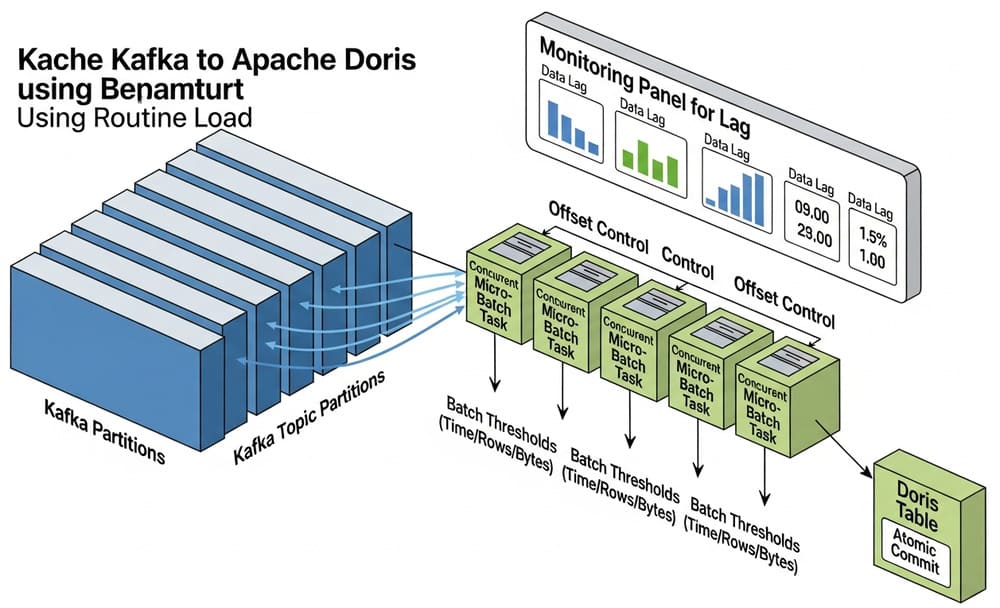
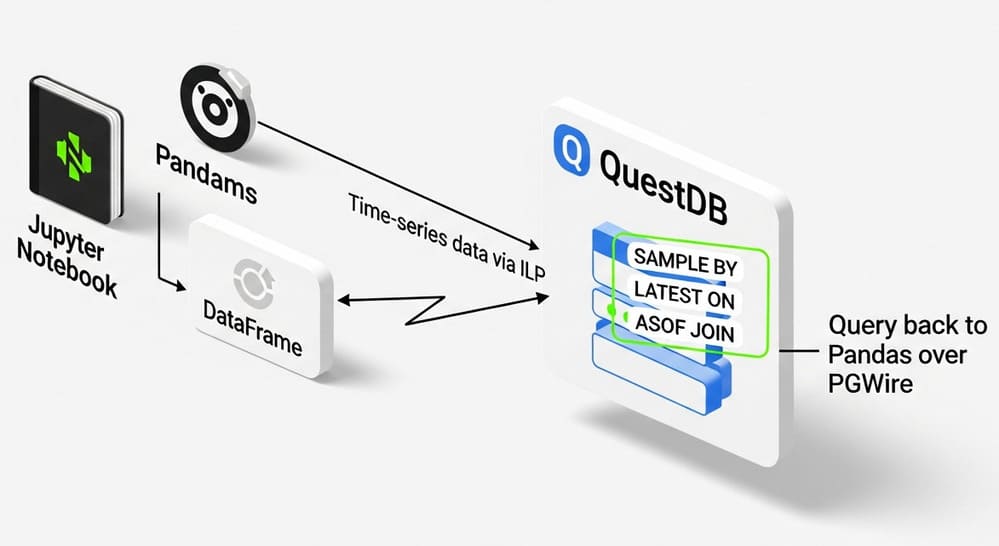
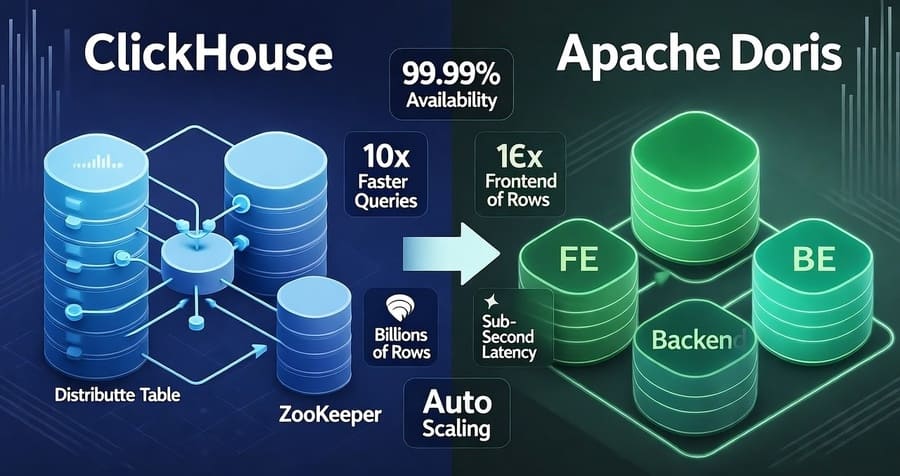
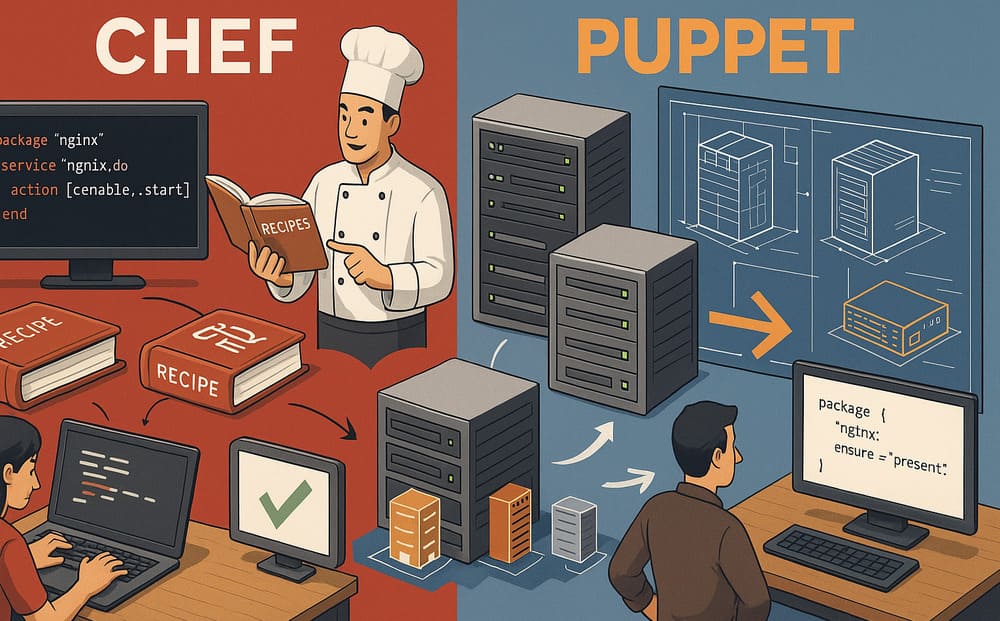
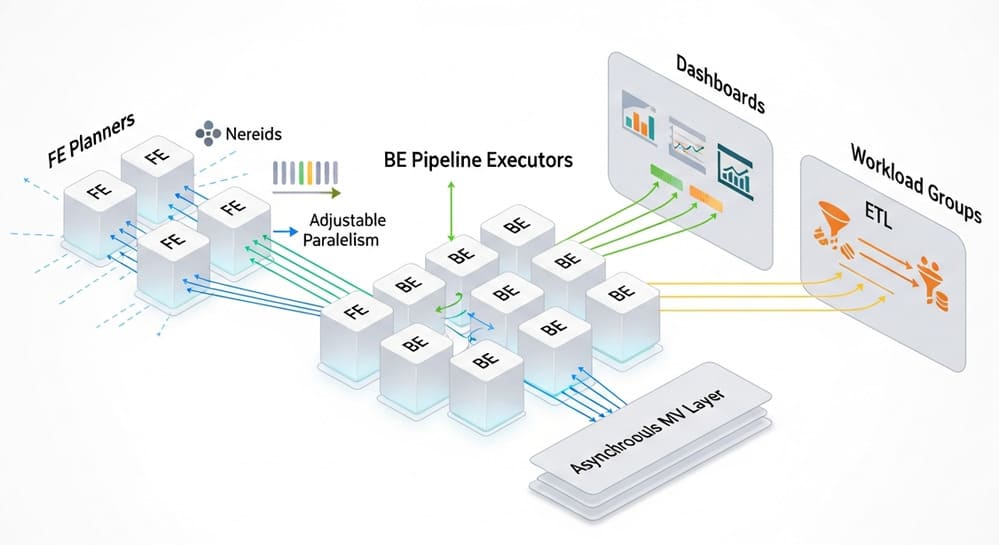


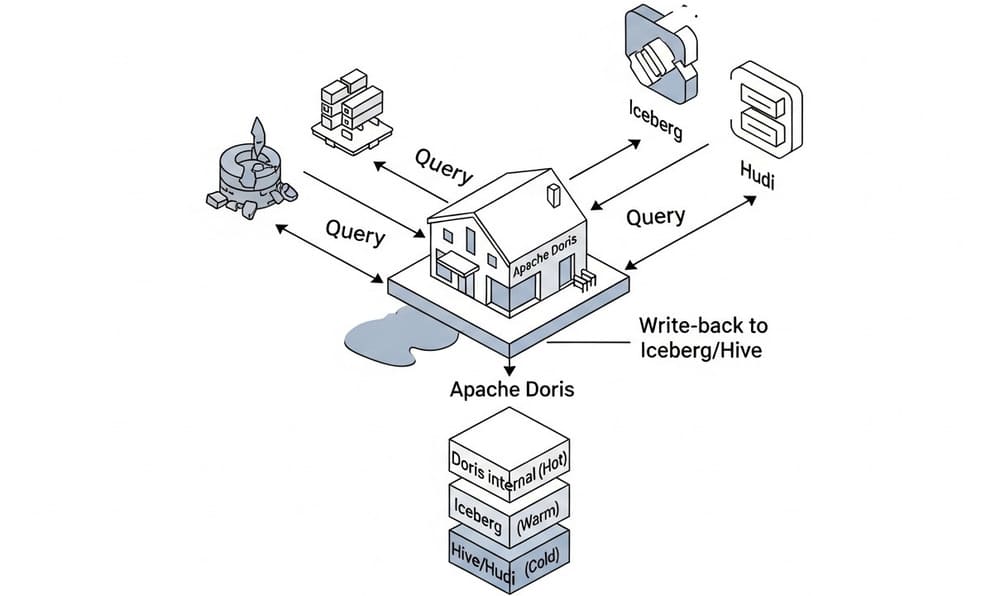
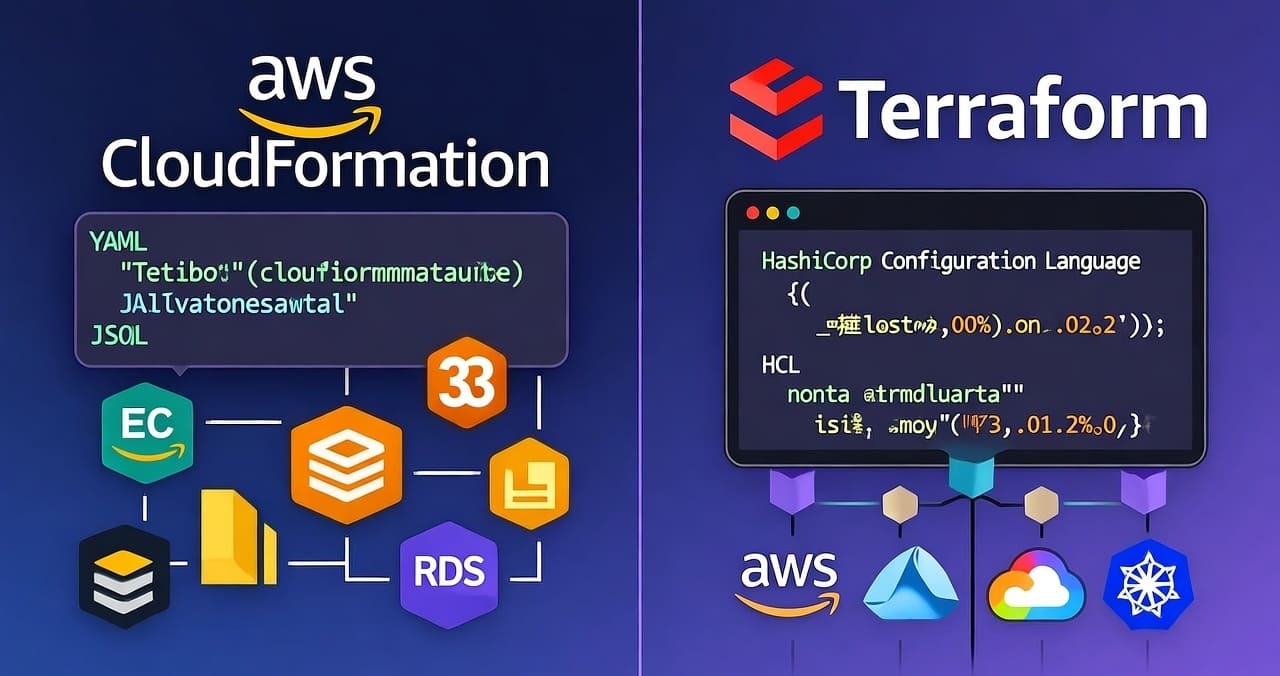
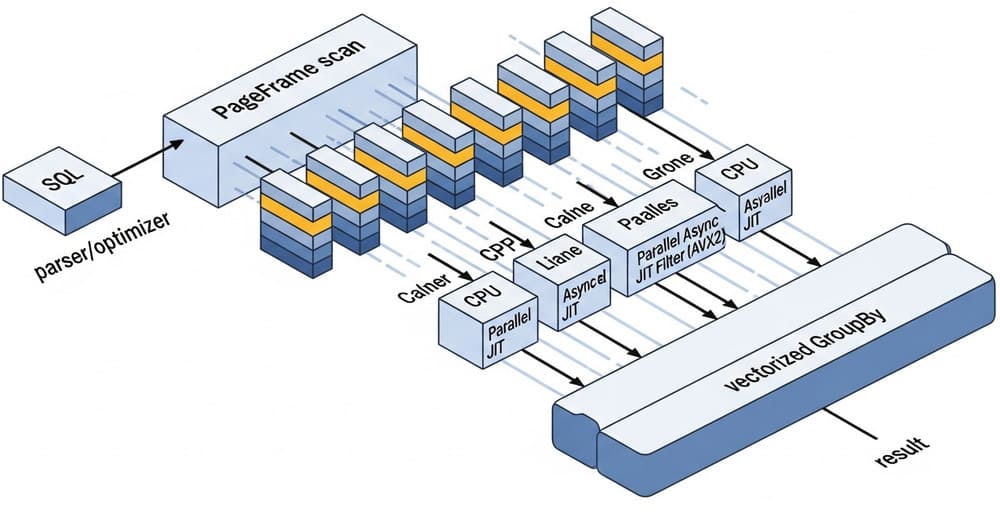
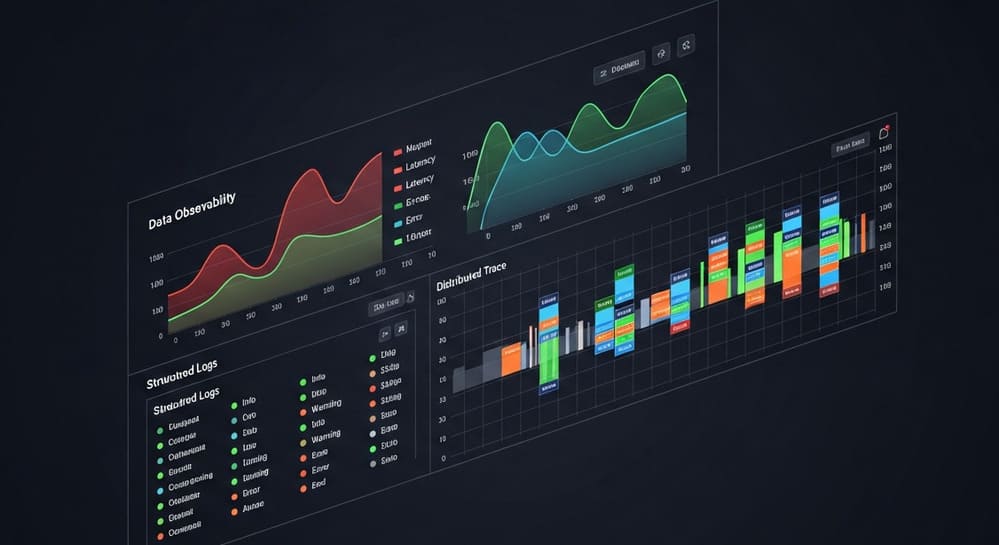
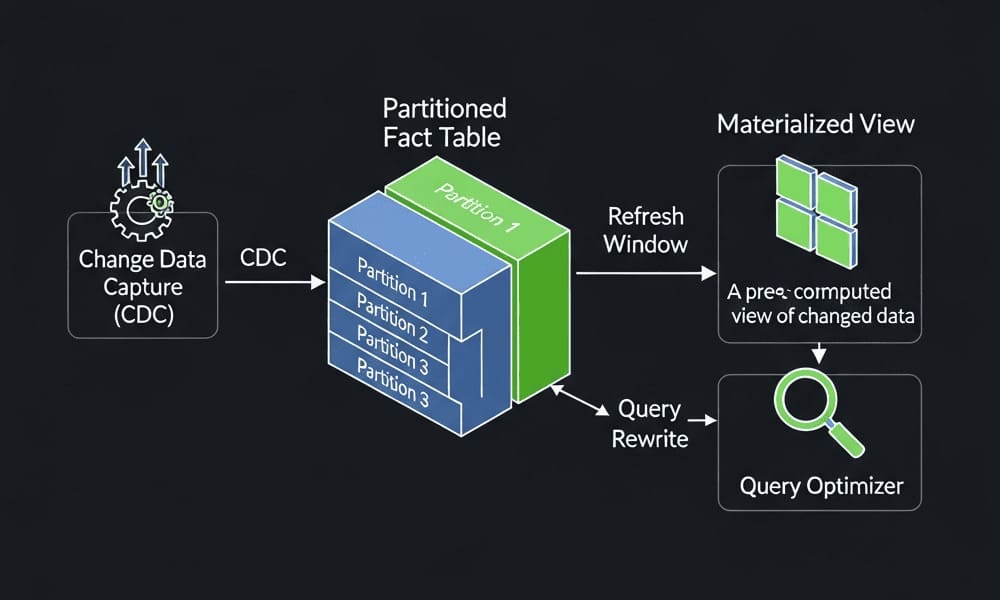
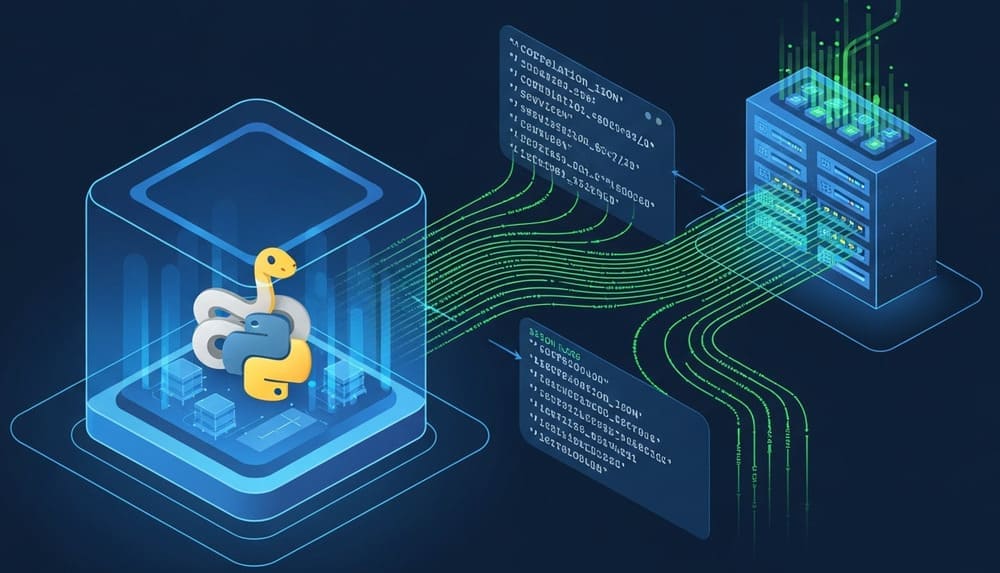
Leave a Reply